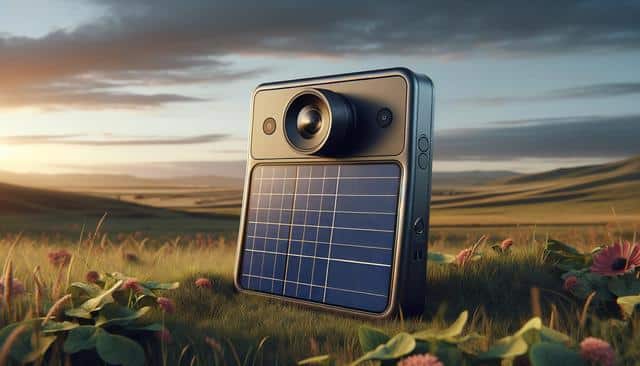Understanding Solar Cameras
Solar cameras are an innovative solution in the realm of security and surveillance. These devices operate on solar energy, eliminating the need for a traditional power source. This makes them a practical choice for remote locations or areas where setting up electrical infrastructure is challenging. Equipped with photovoltaic panels, solar cameras convert sunlight into electricity to keep them running. They are designed to store energy in built-in batteries, ensuring continuous operation even during cloudy days or at night.
This technology is suitable for homeowners, businesses, and organizations that wish to enhance security without incurring high electricity costs. They are particularly beneficial for outdoor areas like gardens, yards, and construction sites, where power outlets are sparse. By choosing solar cameras, users can reduce their carbon footprint, contributing to environmental sustainability while ensuring safety.
Why Choose a Solar Camera?
Solar cameras have become a go-to option for many due to their numerous advantages. Firstly, they offer a cost-effective solution with zero electricity bills. Since they harness energy from the sun, users save significantly on energy costs. Additionally, solar cameras offer flexibility in placement. Without the need for wiring, they can be installed in hard-to-reach areas that are not feasible for conventional cameras.
Moreover, solar cameras are easy to install. They require minimal technical expertise, enabling users to set them up without professional help. This is a major advantage for individuals looking to enhance security quickly and efficiently. Furthermore, their design incorporates advanced features like motion detection, night vision, and mobile app integration, which provide comprehensive surveillance solutions.
Are Solar Cameras Right for You?
Deciding whether solar cameras are the right choice depends on several factors. Consider the area you need to monitor. For large or remote outdoor spaces, solar cameras are an outstanding option due to their self-sufficiency. Also, evaluate your environmental conditions. Locations with ample sunlight will benefit the most from solar technology.
Additionally, assess your security needs. If you require continuous monitoring, opt for models with larger battery capacities and efficient solar panels. It’s also essential to evaluate the camera’s features to ensure they meet your specific requirements, such as weather resistance and video quality. By understanding your needs and the camera’s capabilities, you can make an informed decision.
Buying Solar Cameras Cost-Effectively
Purchasing solar cameras doesn’t have to break the bank. Here are some tips to buy cost-effectively:
- Research and Compare: Look at different models, read reviews, and compare prices from various retailers to find competitive deals.
- Look for Discounts: Keep an eye out for seasonal sales or promotional discounts that can offer significant savings.
- Consider Refurbished Models: These are often less expensive than new models and come with warranties to ensure reliability.
- Invest in Quality: While it might be tempting to choose the cheapest option, investing in a well-regarded model can save money in the long run due to lower maintenance costs.
By following these strategies, buyers can find solar cameras that offer exceptional quality without overspending.
Conclusion: Making an Informed Choice
Solar cameras present a compelling solution for enhancing security in a cost-effective and environmentally friendly manner. They are suitable for a variety of applications, from home security to monitoring expansive outdoor spaces. To ensure they are the right choice, consider your specific needs, environmental conditions, and security requirements.
By understanding the benefits and limitations of solar cameras, and leveraging cost-effective purchasing strategies, users can make informed decisions. Ultimately, investing in solar cameras not only enhances security but also contributes to a sustainable future, making them a wise choice for the environmentally conscious consumer.
